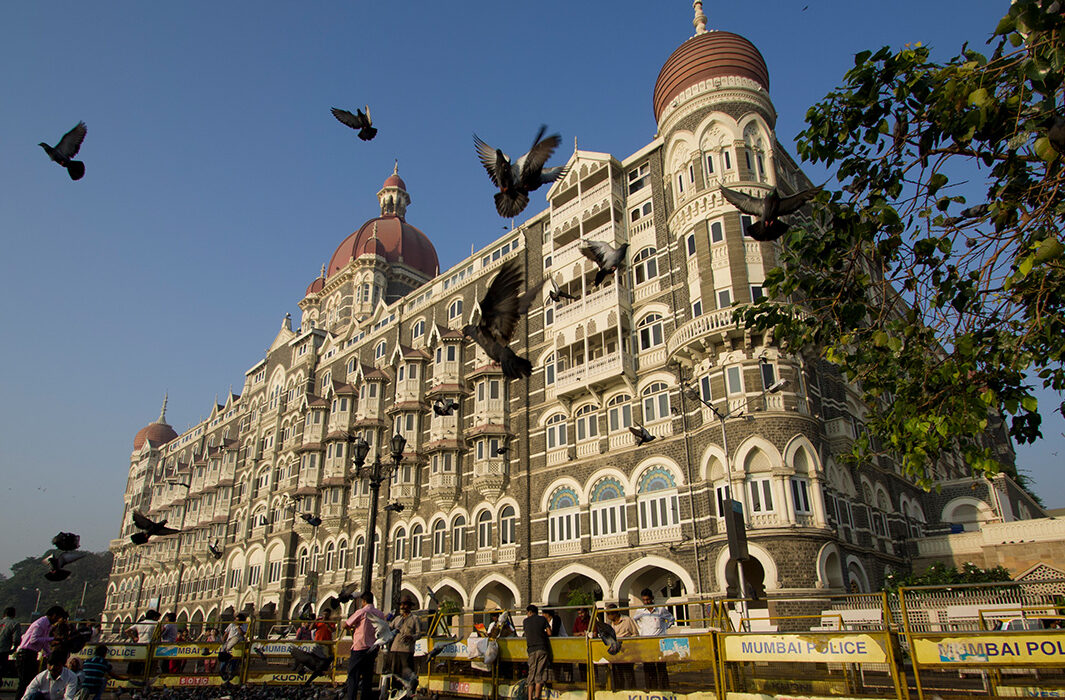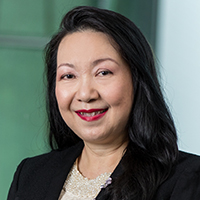What is the purpose of business? Many first-time students of business would give a simple and straightforward answer: to make a profit. NUS Business School Associate Professor Audrey Chia says ethics must play a central role in the education of future leaders, and building businesses with a social conscience.
In November 2008 India’s commercial capital, Mumbai, was rocked by a series of coordinated terrorist attacks that lasted for four days and claimed the lives of 164 people.
While attacks took place across the city, the siege at the luxury Taj Mahal hotel (pictured above) produced some of the defining images of the attacks and witnessed some remarkable acts of bravery by hotel staff, several of whom were killed or wounded trying to protect guests or guide them to safety.
Business does not operate in a bubble; it cannot be seen, nor can it function, in isolation from the society that surrounds it
In the days immediately after the hotel owners, the Taj Group, moved quickly to look after the families of all staff who had died or were injured. The company pledged to support the education of children whose parents had been killed and offered jobs to relatives who had lost a key breadwinner.
It went further still, making contact with and supporting souvenir sellers who worked in the vicinity of the hotel and had seen earnings dry up as tourist numbers plummeted. These were not employees of the hotel, but were part of the business ecosystem that the hotel had created – and the hotel felt a responsibility towards them.
The response of the Taj Group in the wake of the siege is a revealing example of how one business views its responsibilities to the society in which it operates – in other words, how it sees its purpose.
Social conscience
Business does not operate in a bubble; it cannot be seen, nor can it function, in isolation from the society that surrounds it. The two have an interdependent relationship: Society relies on business to create wealth, while business relies on society to provide the suitable conditions in which it can create that wealth.
Like the Taj Group, many businesses operate in cities and communities that have high numbers of poor or marginalised residents. Are these businesses bound to do anything for them, and, if so, what? Should business have a social conscience?
Recent years have seen a growing range of organisational forms emerge in response to this question. One is the increasingly popular concept of the “B Corporation” – the B representing “benefit”.
Firms which have identified themselves with the B Corp philosophy – Ben and Jerry’s ice cream is one prominent example – commit to a measure themselves and report not just on a financial bottom line but on a social one as well.
How firms like these respond to the question of social responsibility shape the identity and purpose of that business and its approach to ethics.
Such actions do not happen naturally, nor do they necessarily come easily – rather they come about as a result of conscious and considered decisions. And of course whilst examples like the Taj Group they can have a positive impact, these decisions can also lead firms into more questionable practices.

Cool innovations: The Chotukool portable fridge
Having a social conscience can open up a range of benefits and opportunities for business –sometimes unexpected.
The Chotukool fridge is one of a growing number of examples that are making India a hotbed of social innovation.
Launched in 2010 by Mumbai-based firm Godrej and Boyce, the Chotukool was developed in response to a largely unaddressed problem of food storage for the rural poor in India, a country where 80 per cent of the population have no refrigerator.
Rather than use conventional compressors, engineers adapted low power, solid-state cooling technology from the computing industry to produce an affordable, functional and attractive solution to a social need. Godrej worked closely with rural communities, primarily women, to ensure the product met their needs and was fit for purpose.
Yet in designing a product targeting lower income consumers the Chotukool has also become a desirable product in more affluent markets. As a result, Godrej has expanded its range of Chotukool products, even offering customisable options to customers able to pay more. The Chotukool became literally and metaphorically “cool”.
The example of the Chotukool shows how having a social conscience and looking to address social needs can drive companies and employees to think differently about products and services, exploring new paths of innovation and opportunity.
Misbehaviour and misconduct
Recent history has given us a steady stream of corporate misbehaviour and headline-grabbing examples of ethical misconduct. From the collapse of Enron in the US to the recent case of Volkswagen’s falsified engine emissions, the news agenda seems to jump from one business scandal to another.
Here in Singapore we have not been immune. The 2005 scandal at the National Kidney Foundation, for example, exposed some deeply questionable ethics in one of our most high-profile charities.
With these scandals come inevitable questions: Where did it go wrong? How are we learning from them? And how are we preparing future generations of leaders to make better decisions?
Within the global community of business schools there has for several years been a strong sense that we have a key part to play. In the wake of the 2008 financial crisis, some critics pointed blame at business schools, accusing us of teaching a focus squarely on profit, or even on bending the rules just to make better numbers.
Certainly – perhaps inevitably – some students seek a business education primarily for self-interest. But at NUS Business School we believe that ethical leadership is critical to effective and successful business management. As such we place ethics not simply as an add-on extra course but at the heart of our curriculum.
Lifting the veil
One particularly effective and illuminating classroom tool that we use is a role-playing concept known as the “veil of ignorance”.
Covered by this “veil”, parties to a discussion have no knowledge as to their individual social status in an issue up for debate. Arguments and positions are formed free from self-interest. But when the “veil” is lifted and the participants’ social standing in the argument revealed these judgements are challenged.
The results and change in outlook among those involved can be very revealing.
Teaching ethics and social responsibility is not about preaching right and wrong; rather it is about building in future business leaders the awareness, reasoning skills and core principles of behaviour that will help guide their future decision-making.
Ethical judgements involve a huge emotional component; deciding what we value and what is important, and recognising that very often we don’t all agree. Developing these skills enables our students to look beyond themselves and consider the impact of actions on others.
The purpose of business can take many and varied forms. Our role as a business school is not to turn every business into a B Corp or a clone of the Taj Hotel Group.
But by nurturing an ethical, socially-conscious mind-set we are equipping future business leaders with the tools take on the responsibilities of stewardship and make a positive contribution to the society where they work.





